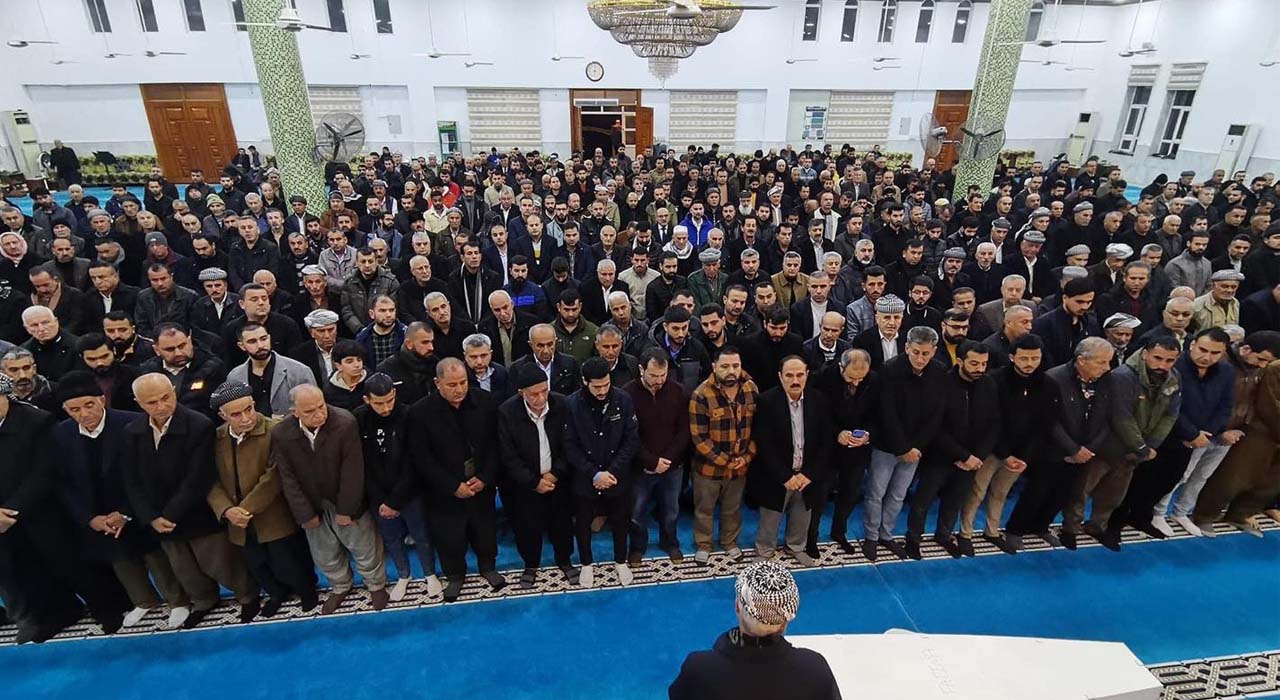Kurdish-Americans Buried in Duhok

WASHINGTON DC, United States (Kurdistan 24) – A group of Kurdish Americans, who died in an automobile accident on a major highway in Pennsylvania, were buried in Duhok on Wednesday. The victims, five women, were all from Binghamton, New York.
They were returning from an Umrah pilgrimage to Mecca. But the weather was bad, and as they drove back to Binghamton on Jan. 16 from Dulles airport in northern Virginia, their car hit a rail on a slippery highway. With visibility limited by falling snow, they were then hit by a tractor-trailer truck, causing the fatal accident.
Three of the women were relatives of Karwan Zebari, Director of Policy and Advocacy at the Kurdistan Regional Government’s Representation in Washington DC: Berivan Zebari, 43, and Havrist Zebari, 42, two of his sisters, as well as Berivan’s daughter, Aleen Ameen, 19. Two other women from the Binghamton area’s Kurdish community also died: Fatma Ahmed, 71, and Shahzinaz Mizouri, 56.

Karwan Zebari accompanied the bodies of the deceased back to Duhok for burial there. As Zebari told Kurdistan 24, it was their wish to be buried in Kurdistan. And that, he explained, reflected a phenomenon of important political significance: the enduring ties of loyalty and affection of the Kurdish diaspora for their ancestral homeland.
“These were Kurdish Americans,” Zebari explained, “and they had lived abroad for nearly 30 years.” But, he continued, “Kurdish patriotism still looms large, even within the diaspora community, when people may have been away for three decades.”
“Even the new generation of Kurdish-Americans who were born in the United States, still wanted to be buried in Kurdistan,” he continued. “They wanted to be laid next to their loved ones, connected to their roots.”
The Kurdish Community in Binghamton, New York
Kurdistan 24 also spoke with another brother of the deceased, Hariwan Zebari, who lives in Binghamton. He was in the group that made the Umrah.
Hariwan explained that the origins of the Kurdish community in Binghamton really lie in 1996 and the evacuation of a significant number of Kurdish fighters and their families to the U.S. then, after Saddam Hussein, who was still the president of Iraq, assaulted Erbil.
That was during the presidency of Bill Clinton. In the 1992 presidential campaign, Clinton complained that his opponent, George H. W. Bush, should have forced Saddam’s ouster during the 1991 Gulf War, rather than end that war with Saddam in power.
Read More: The US Watches, as Saddam Crushes the Uprisings: 25th Anniversary
This reporter was the advisor on Iraq to Clinton’s 1992 presidential campaign, and I actually briefed him on the blunder Bush had made at the war’s end (Bush thought Saddam would be overthrown in a coup.)
Clinton seemed to agree on the need to get rid of Saddam. But once elected president, Clinton, for whatever reason, didn’t want to deal with Iraq.
So Saddam remained and problems grew and festered. One such problem was the fighting that emerged between the two major Kurdish parties in the context of the U.S. neglect. It was far from their finest hour, with the Patriotic Union of Kurdistan (PUK) aligned with Iran and the Kurdistan Democratic Party (KDP) turning to Baghdad.
Saddam exploited the situation to attack Erbil, where the Iraqi opposition was based. Saddam’s attack finally moved the Clinton administration—in the person of Secretary of State Madeleine Albright, who replaced the colorless Warren Christopher in Clinton’s second term—to move to end that fighting.
Read More: Albright holds ‘special place’ in Kurdish history, says President Nechirvan Barzani
However, the Clinton administration did not make any serious effort to restore the viability of the Iraqi opposition. Clinton had little appetite for the work involved in overthrowing Saddam. Instead, he evacuated those most at risk of Iraqi retaliation, along with their families, to the United States.
Hence, the Zebari’s, as well as some ten other Kurdish families, found themselves in upstate New York, and Binghamton’s Kurdish community was born.
In the following years, the Kurdish community in Binghampton grew significantly. But as Wednesday’s burial service in Duhok showed, it retains a strong attachment to the Kurdistan Region.
